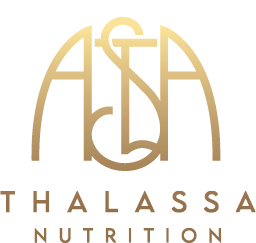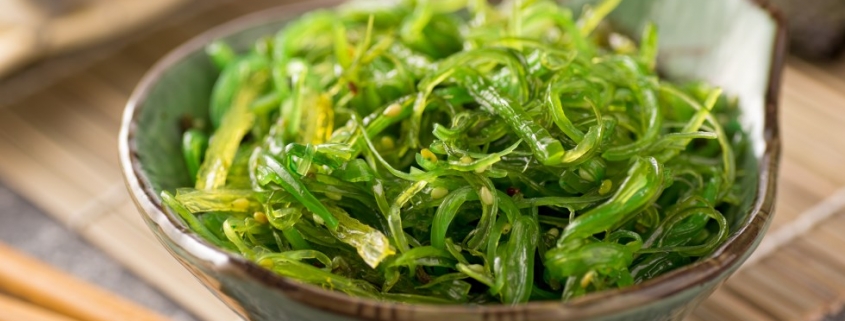Sea vegetable and plant-based diet
Sea vegetables are not generally a common feature in modern diets, with the exception of certain varieties that are used as thickeners in processed foods, most notably ice cream. However, we can do much to improve our nutrient intake by incorporating these greens from the sea in our diet on a regular basis. While your experience with sea vegetables may be limited to the nori that is used to make sushi rolls, there are actually quite a wide variety of sea vegetables available with a range of different flavors and textures.
Evidence of the important role that these foods may play in our diet can be seen in the research of Weston Price. He noticed that native people living in the mountains of the Andes would go to incredible lengths in order to obtain sea vegetables, even by risking their lives to trade with tribes living in the coastal regions. They always carried a small bag of seaweed with them and ate a little of it every day.
As with other greens, sea vegetables contain abundant chlorophyll and minerals and are especially rich in certain trace elements that may be in limited supply in our diets. They are a wonderful source of calcium and iron and may also play an important role in thyroid health because they contain iodine.
“Sea vegetables contain more minerals than any other kind of food,” claim doctors Seibin and Teruko Arasaki, authors of “Vegetables from the Sea”. They are especially valuable for vegans because they are rich in many trace elements and minerals including zinc, selenium and chromium that are often scarce in plant-based diets.
Sea vegetables in general provide all the essential amino acids so they can contribute to your daily protein requirement. They contain specific fibers that can help neutralize the effects of radiation and heavy metals, which makes them an excellent food for counteracting the negative effects of computers, cell phones and x-rays. They also contain a substance called alginic acid that helps to bind and draw toxins out of the body, so they can be a valuable addition to a detox diet.
Scientific studies show that sea vegetables may also reduce the risk of breast cancer and boost immunity. Sea vegetables, especially dulse, have even been shown to inhibit the growth of the herpes virus. They are also known for their ability to boost energy, balance hormones, accelerate wound healing, and for their anti-aging benefits.
Some sea vegetables such as nori and dulse are ready to eat without any preparation. Nori can be used as a substitute for bread to make raw wraps or raw vegan sushi rolls. Dulse is high in natural salt and makes a good salt substitute when added to savory meals. It can be purchased in flakes which are great to sprinkle on top of an avocado based raw soup and its unique flavor can help to increase the authenticity of a raw vegan ‘tuna’ salad.
Most other sea vegetables such as wakame, hijiki and arame need to be soaked in water for up to an hour or so before use. Wakame combines especially well with cucumber such as in this Wakame and Cucumber Salad. Hijiki and arame are great with carrots and an Asian inspired dressing such as sesame tahini with ginger.
Any of the sea vegetables can also be added to a green smoothie or raw soup to boost their nutritional value. About half to one teaspoon in a green smoothie is adequate and will not overpower the flavor of your smoothie.
Because they are such concentrated foods and their high iodine content can potentially influence thyroid function the recommended intake of sea vegetables is best limited to one or two ounces a week on average.
Note: Many commercially available seaweeds can become contaminated with pollutants including heavy metals and radioactive compounds. Their ability to bind with toxins actually means that they can accumulate these compounds. As such it is vital to ensure that the seaweeds you purchase are certified organic and free of pollutants.
One of my favorite brands is Seaweed Iceland, who dry all their seaweeds at temperatures below 90 degrees using hand harvesting and sustainable geothermal energy. The waters of iceland are remote and unpolluted and also have the advantage of being as far as possible away from Fukushima.
I’m also a fan of these Certified Organic Raw Nori Sheets, which are dried at under 85 degrees and tested daily for pesticides, herbicides, heavy metals, radiation, and other contaminants.
References:
Mitoku Company Ltd, Medicine from the Sea, Mitoku: http://www.mitoku.com/products/seavegetables/Seavege_health.html

 no
no no
no
Leave a Reply
Want to join the discussion?Feel free to contribute!